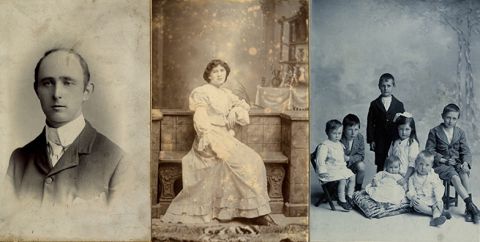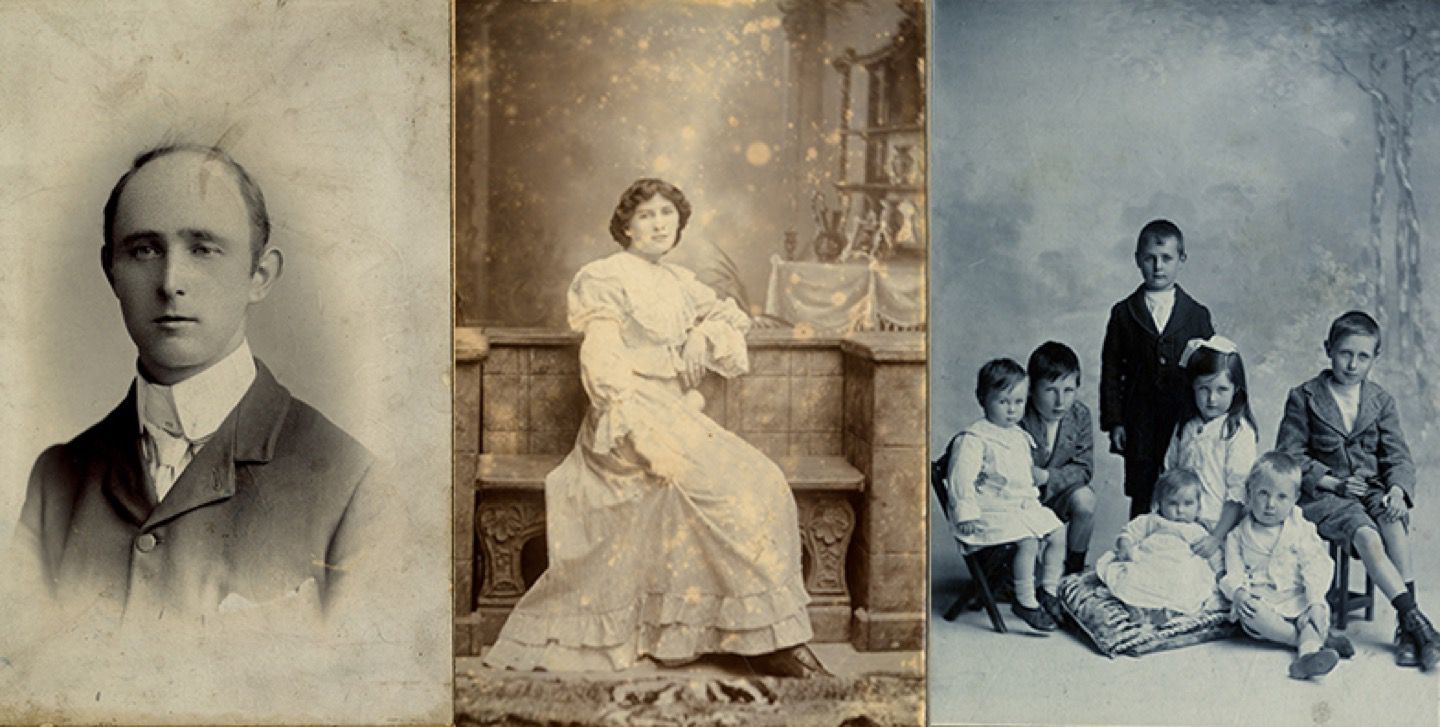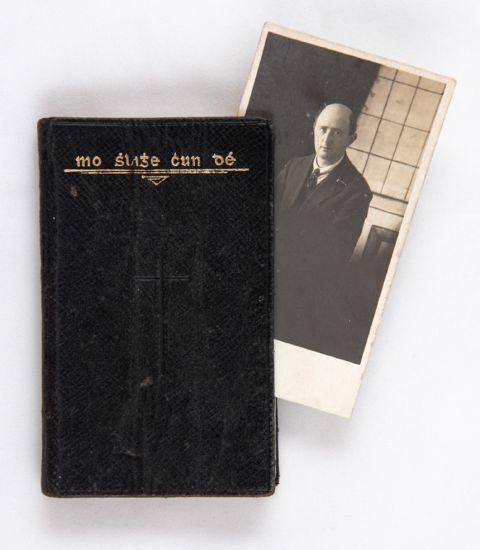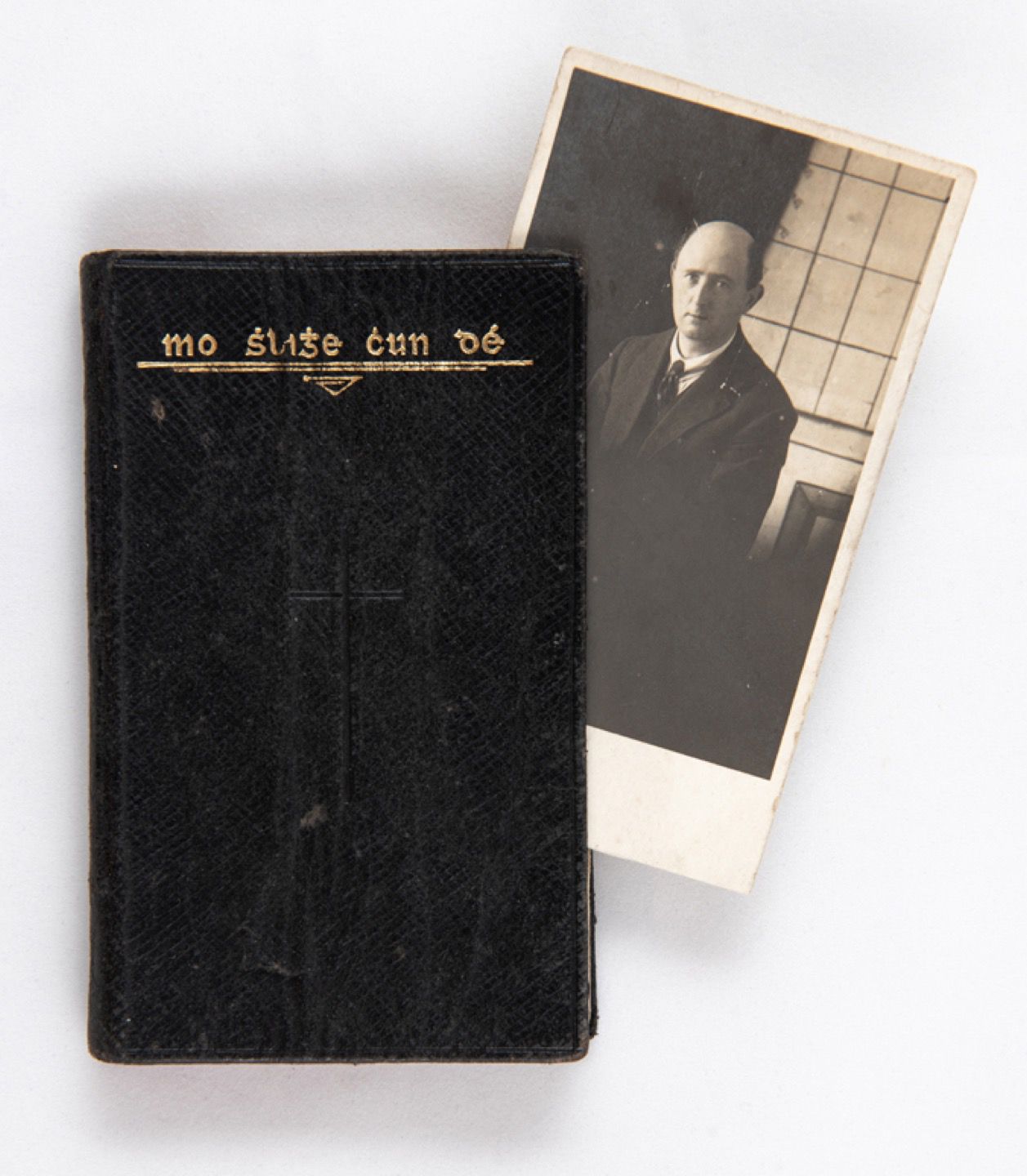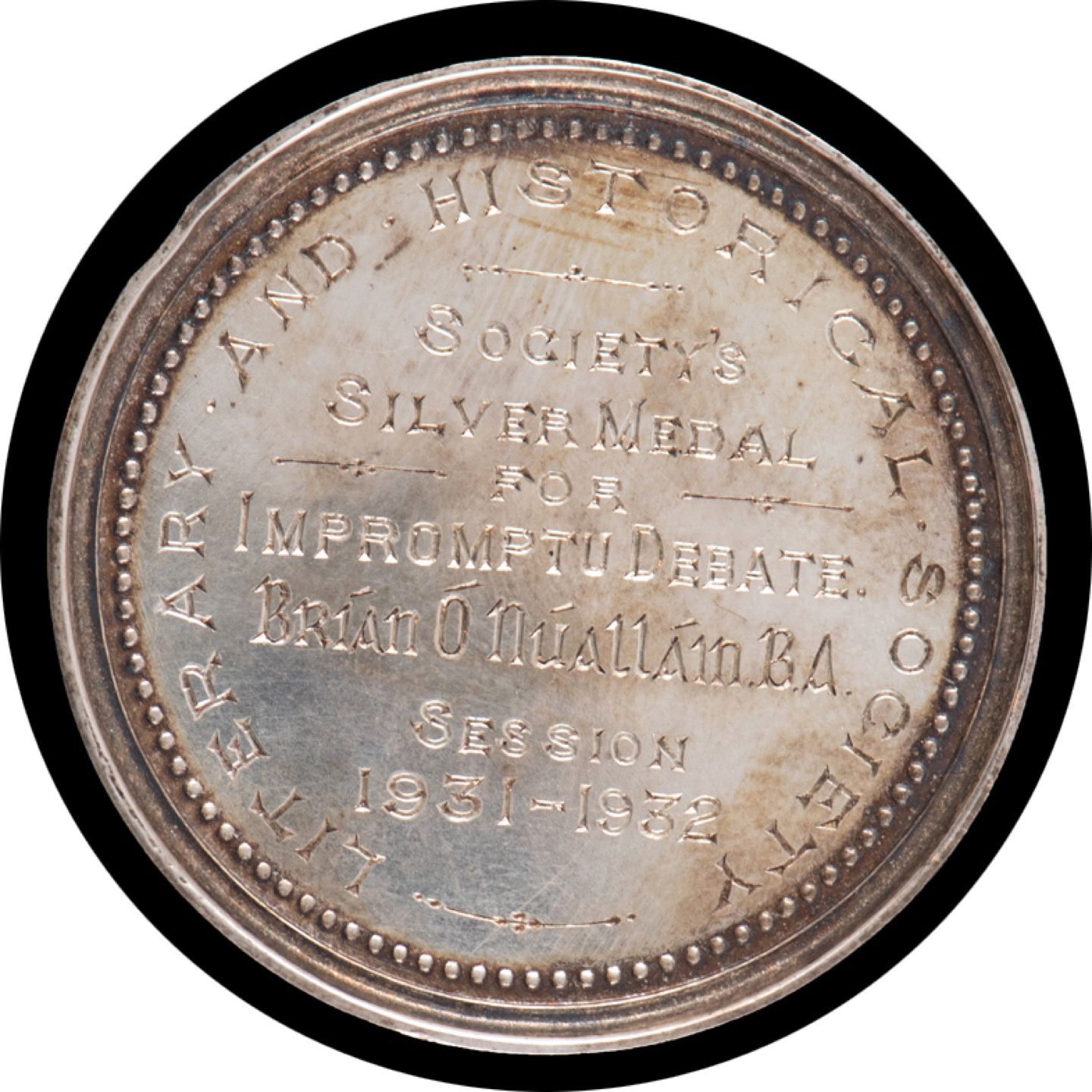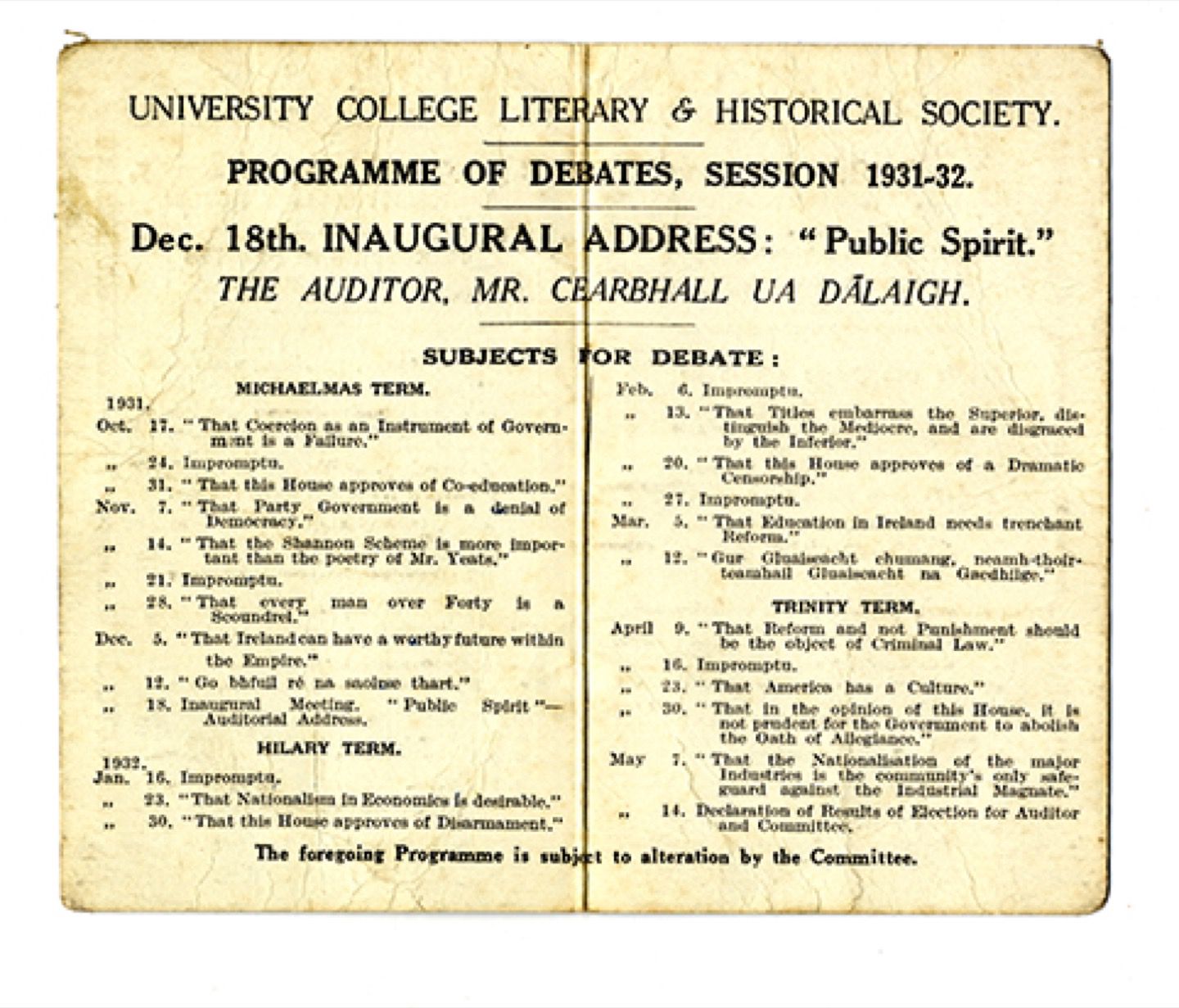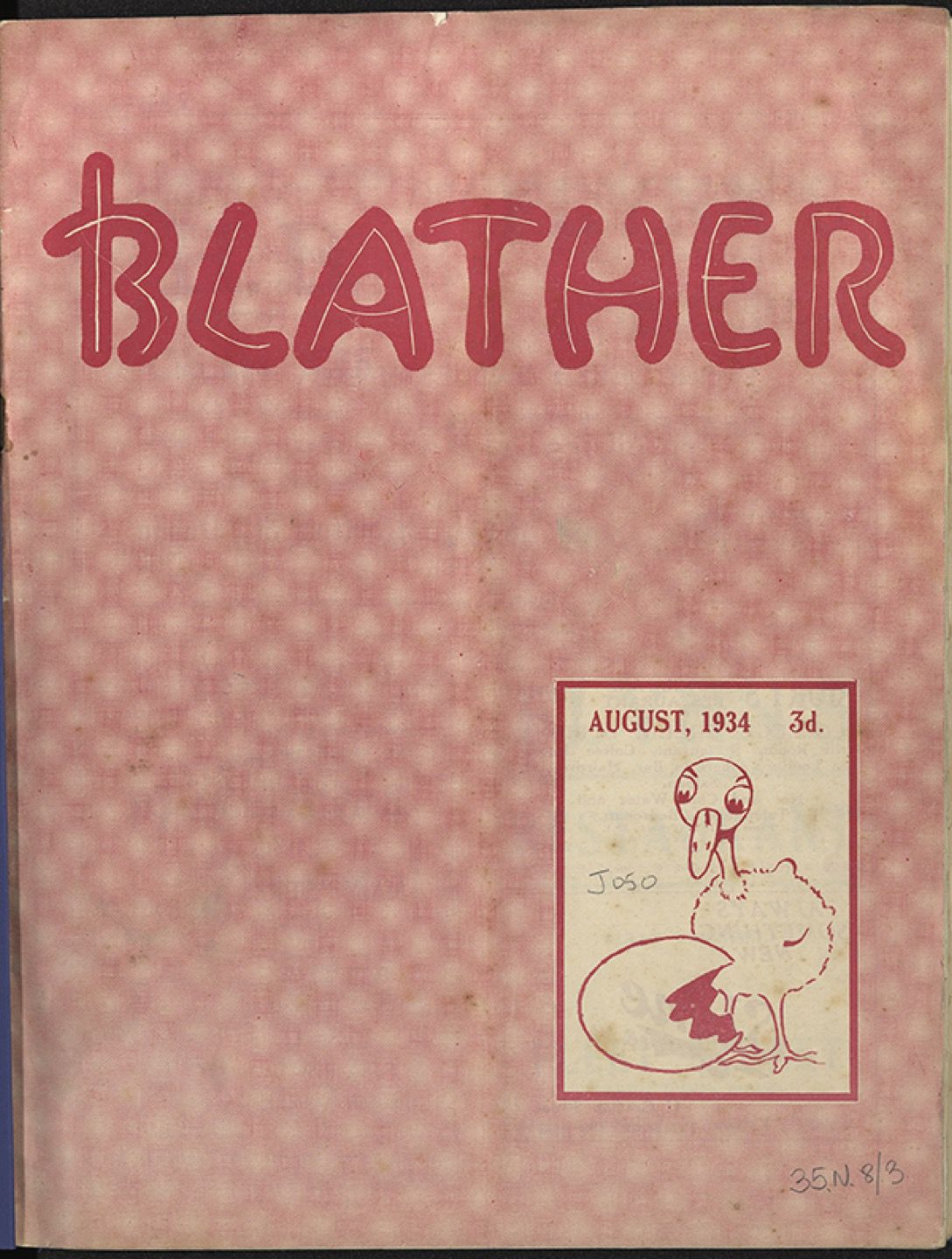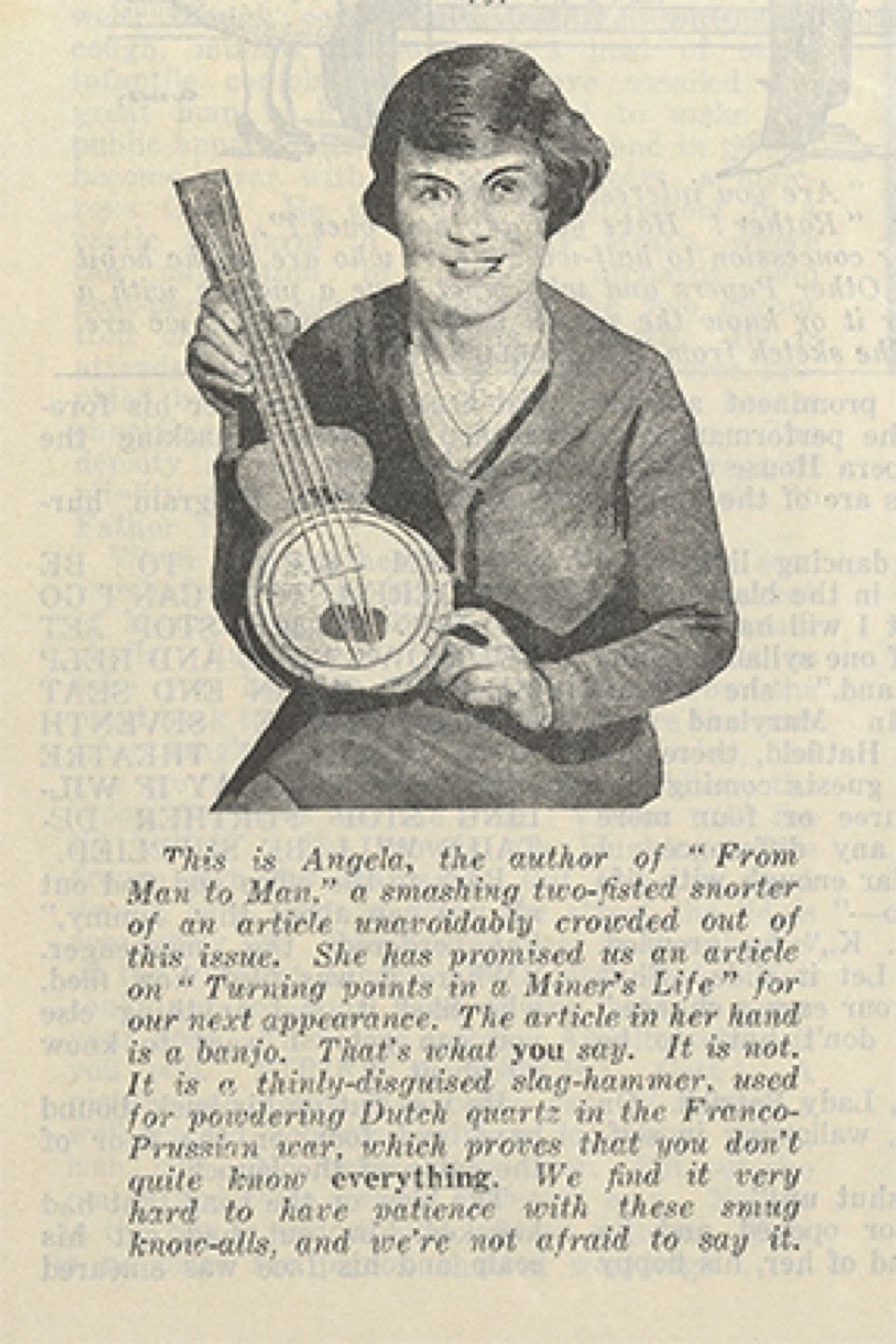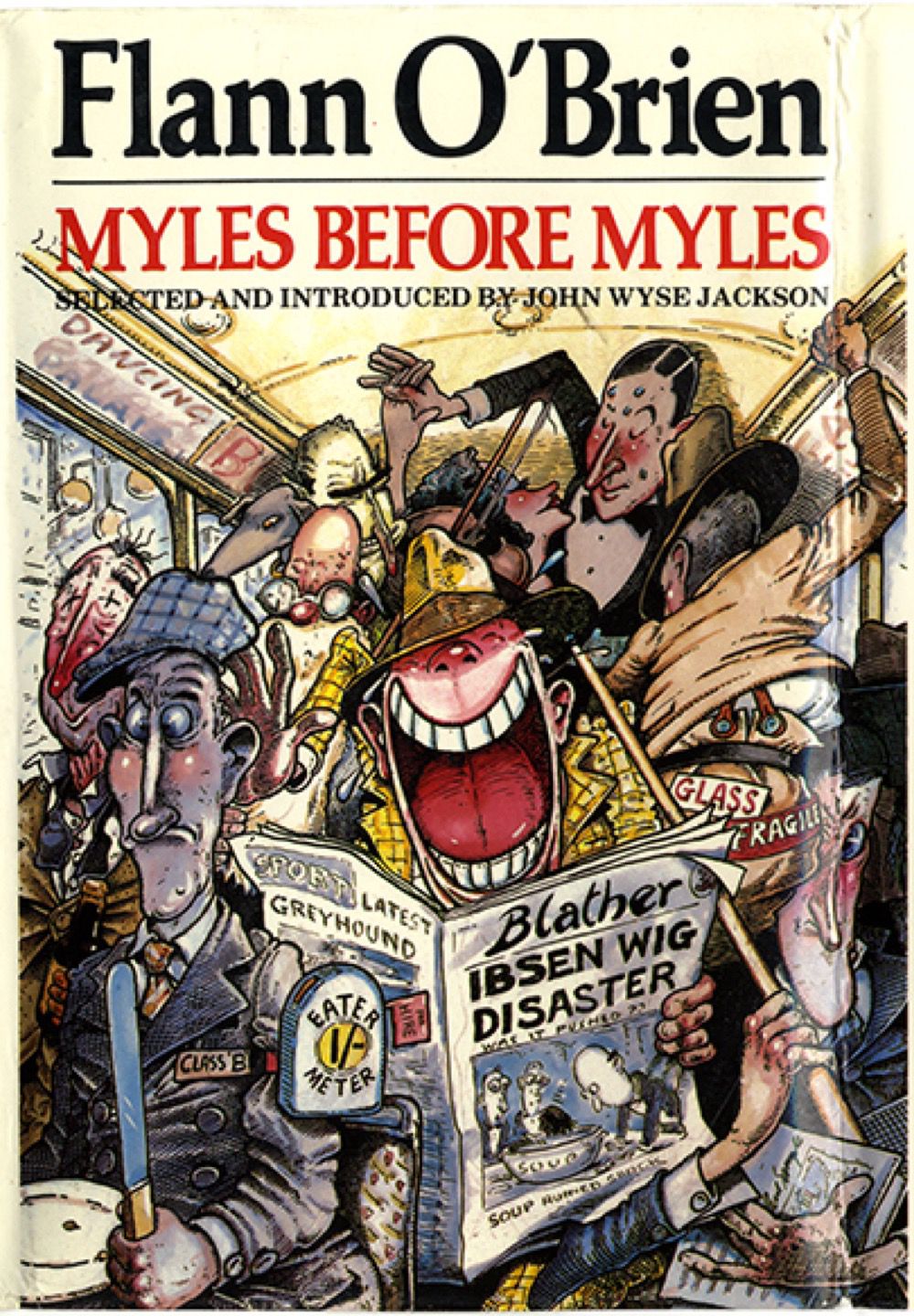Early Years
Border Baby
Brian O’Nolan was born on October 5, 1911, in Strabane, now a border town in Northern Ireland.
At the time, Ireland was under the control of the British Parliament. The Anglo-Irish Treaty of 1922, which brought an end to the Irish War of Independence, led to the partitioning of the island. The six northern counties remained part of the United Kingdom, while the other 26 were constituted as the so-called Irish Free State, a self-governing dominion within the British Empire, like Canada.
In 1923, O’Nolan’s parents, stalwart Irish nationalists and Catholics who spoke Irish at home, moved the family definitively to Dublin. O’Nolan completed secondary schooling at Blackrock College, a Catholic school for boys, before going on to earn bachelor’s and master’s degrees at University College Dublin.
The Ireland O’Nolan knew and satirized was not the socially liberal country it has become in recent years. O’Nolan’s Ireland was socially repressed and economically depressed. Censorship laws limited the range of newspapers, magazines, books, and films that could be produced or imported. The Irish Constitution of 1937 included a clause that gave the Catholic Church a “special position” in society, if not that of a state religion. This provision and others favoring the Church and its moral teachings were eventually repealed through a series of amendments beginning in 1973, not quite a decade after O’Nolan’s death in 1966.
Unlike James Joyce and Samuel Beckett—Irish-born writers who gained greater fame after fleeing to the continent—O’Nolan remained in Ireland, bound to his family and native land, his bizarre, boundary-pushing fictions offering the only way out.
Father Figure
Michael Victor O’Nolan died suddenly of a heart attack in 1937, leaving Brian as the primary breadwinner for his mother and ten siblings, of which he was the third. Having recently finished his studies and taken a job in the civil service like his father, he supported the family by acting as secretary to a series of senior ministers until a controversy forced his resignation in 1953.
Brian kept a photo of his father tucked in this pocket missal from the 1950s. It contains the yearly cycle of prayers and readings for the Church’s liturgy in Irish, the language the family spoke at home.
Impromptu Debater
During his last two years at Blackrock College, Brian earned medals for English composition. At University College Dublin, he participated actively in its prestigious Literary and Historical Society, earning the medal for impromptu debate for the academic year 1931-1932 and the opportunity to participate on a travel team that competed in England. He narrowly lost an election to lead the Society to Vivion de Valera, eldest son of Éamon de Valera, Ireland’s most prominent and powerful politician.
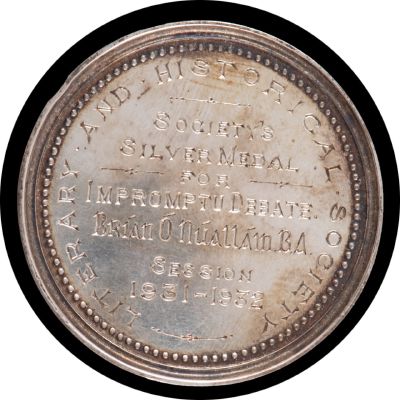
1931-1932 University College Dublin Literary and Historical Society, silver medal for Impromptu Debate
Box 24, Flann O’Brien Papers MS1997-027
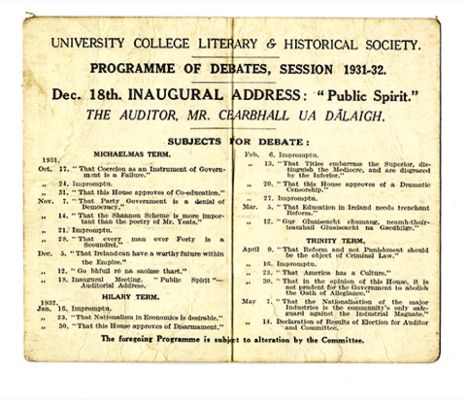
UCD Literary and Historical Society, program of debates, 1931-32
Box 17, folder 21, Flann O’Brien Papers MS1997-027
Blatherings
Brian’s older brother Ciarán also attended UCD in the early 1930s. Both collaborated on the student magazine Comhthrom Féinne (‘Fair Play,’ a sidelong reference to the university’s motto). In an initial experiment with pen names, Brian contributed sketches chiefly as Brother Barnabas.
In the fall of 1934, Brian launched a spoof monthly news magazine called Blather for which Ciarán wrote a few articles. Five issues appeared before Brian began his civil service employment the following year. A 1988 collection of Brian’s early writings edited by critic John Wyse Jackson under the title Myles Before Myles features a cartoon on the cover of a man on a crowded Dublin bus guffawing over a copy of Blather.
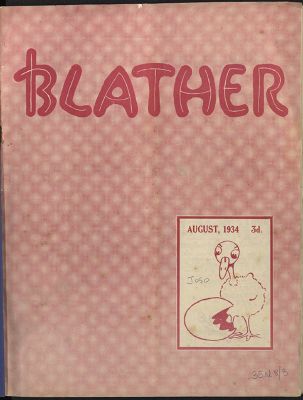
Blather, August 1934
Image courtesy of UCD Digital Library from an original in UCD Special Collections
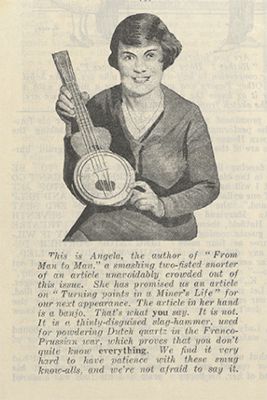
Excerpt from Blather, August 1934
Image courtesy of UCD Digital Library from an original in UCD Special Collections
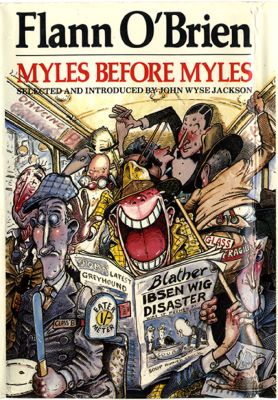
O’Brien, Myles Before Myles, PR6029 .N56 M94 1988 O’BRIEN LIBRARY

